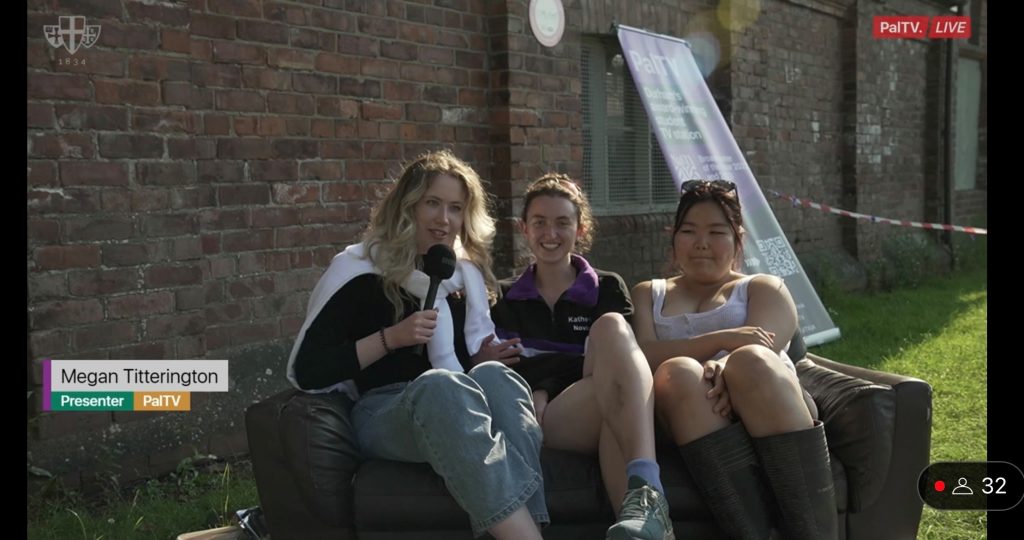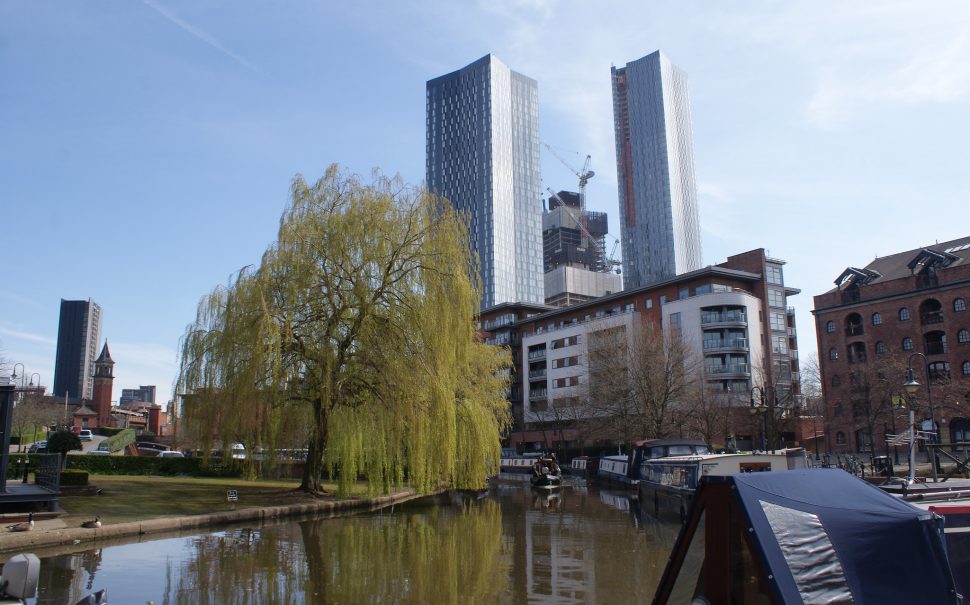“You’ll benefit in your career by not having a Northern accent.”
That’s what I was told by an employee at an Oxfordshire radio station as she gave me a tour, soon after I told her I was Northern.
Her colleague, next to her, agreed.
I was shocked.
No one had ever commented on my Northern heritage like that before.
Despite being born in Wigan to Northern parents and living in the North until the age of 22, I often get mistaken for being a Southerner.
I say ‘New-cas-tle’ instead of ‘New-cars-tle’, but other than that there is no indication that I have been born and raised in the North West and North East. Experienced no mocking about the way I speak.
My dream is to become a presenter one day.
But this simple comment in the radio station made me wonder: Could a person’s accent really influence the success of their career?
@megantitterington1 Anyways I went to see the Carabao cup come home last weekend 🏆 #north #northeast #newcastle #durham #fyp #foryoupage ♬ nhạc nền – Old Songs Old Memories
A new study by the University of Cambridge and Nottingham Trent University showed that Northern accents are at serious risk of being negatively stereotyped.
BBC broadcaster and football correspondent John Murray, however, believes his accent was a strength.
After starting off his career in the North East, he made the move down to London to continue his passion.
Murray said: “I was a North-East voice in the South-East and it was immediately picked up on.
“It was something that hadn’t really been featured at all until that point when it was suddenly a major asset for me.
“And I’m convinced that I made strides because of my accent.”
@bbcsounds A day in the life of a football commentator. #FootballDaily #BBCSounds #podcasts ♬ original sound – BBC Sounds
Commentator Dave Woods agreed that his northern accent didn’t hold him back.
“When I did start broadcasting, I think I adopted a speaking voice,” said Woods.
“I went on air with this adopted accent, if I was in the pub with my mates I wouldn’t talk in the way that I would talk on air.”
Woods, who hails from Bolton, began his career as a rugby league commentator at BBC Sport after he transitioned from print media.
He continued: “I think that’s not necessarily because I thought I was going to be disadvantaged because of a Northern accent but because I felt I had to tone it down a little because that’s just what you did on the BBC.
“Nobody told me I had to but I chose a way to speak which was a little less Northern because I felt that’s what you had to do.”
After speaking with Woods and Murray, I was reassured there was no need to change the way I pronounce ‘Newcastle’ in order to have a successful career in the media.
But accent discrimination still seems to be a problem that persists elsewhere.
Research published as recently as January 2025 has shown that people with accents that are seen as ‘working-class’ are at risk of being stereotyped as more likely to have committed a crime.
These include cities like Liverpool, Newcastle and Bradford in the North.
And a study of more than 300 people that spanned four years at Northumbria University found people viewed northerners with strong accents as ‘less educated’ and ‘less intelligent’ by those in the South.
Attending Durham University myself, I have recollections of the large Southern population of students – with many people dubbing the institution as a Southern university due to the large contingent that flock from South to North.

One current student at Durham, who grew up in the area, said: “I was reluctant to speak in lectures and seminars at first and in my first few months of University I spoke to my parents about elocution lessons.
“I do worry people will hear my accent and judge my ability on it.”
Dr Mary Robinson, a research associate in language variation and change at Newcastle University, suggested that the issue of class could explain why accent discrimination is so prevalent in the United Kingdom.
Dr Robinson said: “It’s definitely less than a second where we make judgements about basic social categories and that can be gender, age or ethnicity.
“In the UK, the biggest thing is class.
“But these stereotypes run around like crazy and they affect pretty much all aspects of our lives; who we make friends with, who we enter intimate relationships with and who we network with.
“The prejudice is often attached to the accent but comes from their ideas of the people. It really is a stand-in for their judgements about the people.
“Which is why it’s not great that it’s not a protected characteristic.”
Protected characteristics are legally defined attributes that people cannot be discriminated against for.
The 2010 Equality Act lists characteristics such as age, disability, race, sex and religion as protected characteristics.
Eddie Roper, originally from Halifax, works as a Senior Sustainability Consultant and doesn’t believe his accent has held him back professionally.
But he is aware that his colleagues will sometimes mock a northern accent: “At work I have a colleague who speaks the Queen’s English, and when he wants to talk about something dead simple, he’ll put on a Northern accent.
“It is not intentionally to belittle but I think it is odd.”
Whilst an asset to some and an oddity to others, it seems that not everyone is held back by speaking with a Northern accent.
If only staff at one Oxfordshire radio station knew that.
Feature image: Manchester. Image by Alan Partridge via Flickr. CC BY 2.0




